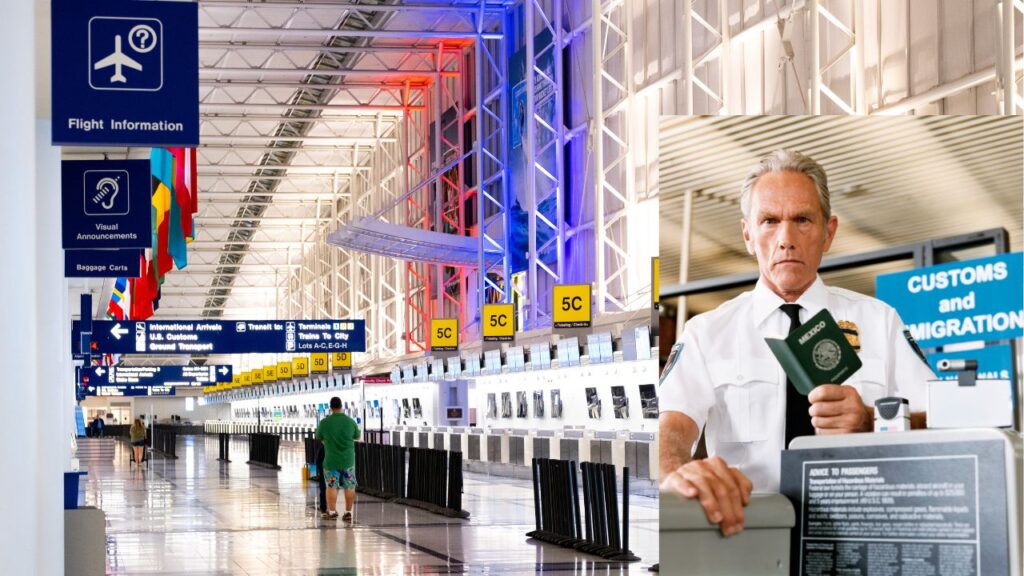
When arriving in Canada, immigration officers may ask you a series of questions to determine your eligibility to enter the country. These questions are typically aimed at verifying your identity, the purpose of your visit, and ensuring you meet the entry requirements. Here are some common questions Canadian immigration officers might ask you at the airport:
What is the purpose of your trip?
This is a common question in almost all cases. This is usually the first question an officer will ask you the purpose of the trip may change the type of visa required to enter Canada or subject you to other regulations. Prepare and answer your question as smoothly as possible.
Dishonest answers can result in a refusal to enter Canada. To be on the safe side, it is important to check visa requirements prior to arrival to ensure smooth immigration.
How long will you stay?
Immigration officers often ask about the length of stay to assess whether you are eligible to enter the country and whether your visa is valid for the duration of your stay. Be prepared to explain the duration of the visit. If you are a student, say how long you will be studying.
Where will you live?
Immigration officers may ask about your accommodation just to ensure that you do not pose a security risk. Try not to give who give very general answers, such as “at a hotel,” or “Airbnb,”. This might lead to further questions. Be very specific and give the name of the hotel or Airbnb you will be staying in. In addition, make sure you have an accommodation confirmation letter or email. If you will be living with a friend or relatives, know their address.
Do you have sufficient funds for your stay?
Immigration officers might inquire about your financial resources and whether you have sufficient funds to support yourself during your stay in Canada. Ensure that you have proof of financial means readily available, such as bank statements or credit cards, to demonstrate your ability to cover your expenses while in the country.
Do you have something to declare?
Some items may be restricted or prohibited from entering Canada or any country you are traveling to. Always make a note of the goods you are bringing and be sure to declare them.
What is your occupation?
Your occupation is of interest to immigration officers as it helps them understand the purpose of your visit and whether you have ties to your home country. Provide a brief description of your occupation, highlighting any relevant details that support your reason for visiting Canada.
Have you ever been convicted of a crime?
Canadian immigration officers have the authority to conduct criminal background checks upon arrival. They may ask if you have ever been convicted of a crime. Answer truthfully, as providing false information can have serious consequences and could lead to refusal of entry.
Do you have a return ticket?
Having a return ticket is evidence of your intention to leave Canada before your authorized stay expires. Immigration officers may ask for proof of a return ticket, so it’s essential to have a copy of your itinerary or e-ticket readily accessible.
Please bear in mind that these are general questions that might be asked. It might not be in the same order. Some questions an officer might ask you would be based on the answers you provide. It is always essential to prepare ahead of time. Preparing ahead of time is the key to successfully navigating immigration questions.
Here are some questions immigration officers might ask you.
Have you been to Canada before? If so, when and for how long?
Have you ever been refused admission into Canada or any other country?
Are you planning to work or study in Canada during your visit?
It’s essential to answer these questions honestly and provide any requested documentation, such as your passport, visa or ETA, travel itinerary, proof of funds, and any other relevant documents. Being prepared and truthful during the interview will help ensure a smooth entry into Canada. Keep in mind that immigration officers may ask additional questions based on your specific situation. Researching the answers to common questions asked by immigration officers can save valuable time and provide a better chance of having a successful outcome. Knowing the relevant immigration laws and having all necessary paperwork and documentation ready are equally important steps to take prior to meeting the immigration officer.